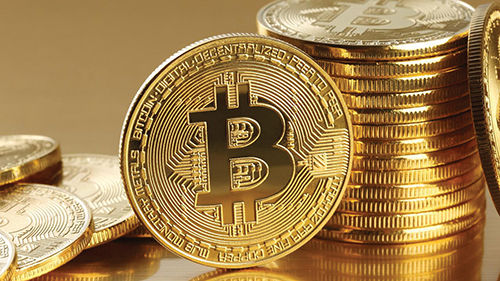Bhutan puts Bitcoin mining plan in motion to power up economy
- Saidpiece
- Sep 3, 2023
- 3 min read
The Bhutan is embarking on a cryptocurrency mining project as part of its ambition to establish a modern 21st-century economy.

Bhutan has partnered with Bitdeer Technologies Group, a Singapore-based company listed on Nasdaq, to create a 600-megawatt mining facility for Bitcoin, the leading cryptocurrency. Bitdeer was scheduled to launch a closed-end fund in late May with the aim of raising $500 million from international investors for this project, and it has been confirmed that the fundraising initiative has indeed begun.
Ujjwal Deep Dahal, CEO of Druk Holding and Investments (DHI), the government's investment arm collaborating with Bitdeer, explained, "Despite Bhutan's geographical limitations and connectivity challenges due to being landlocked and mountainous, its environmentally friendly and relatively inexpensive power supply presents an opportunity to invest in digital assets, fostering a more connected and sustainable economy." He added, "By doing so, we can enhance local expertise and involvement in the rapidly evolving technology landscape, enabling Bhutanese citizens to engage in the modern global economy from within Bhutan."

This venture into crypto mining, a famously unpredictable and contentious industry, comes at a time when Bhutan is still recovering from the economic setbacks caused by the COVID-19 pandemic, which led to a 10% contraction of its economy in 2020. The country has seen a decline in foreign currency reserves, a rise in nonperforming loans in manufacturing and tourism, and a 29% youth unemployment rate last year.
These challenges have cast a shadow over Bhutan's "development success story," as described by the World Bank, with approximately 12.4% of its population, around 786,000 people, living below the national poverty line in the past year, up from 8.2% in 2017 according to government surveys. Despite this, economic growth is projected to reach 4.6% this year. However, due to new regulations and a slow recovery in global travel, tourism, the country's second-largest revenue source, is not expected to return to pre-pandemic levels until 2025.
The government aims to diversify its economy on its way to becoming a high-income nation within the next decade. They are exploring opportunities not only in blockchain-based currencies but also in fields like artificial intelligence, robotics, and biotechnology. The education system is undergoing reforms to prioritize critical thinking, creativity, and digital literacy, including coding lessons for students aged 8 and older.
For cryptocurrency miners, Bhutan's environmentally friendly and relatively low-cost energy supply, mainly from hydropower, makes it an attractive destination. Jihan Wu, Chairman of Bitdeer Technologies Group, expressed excitement about utilizing Bhutan's emissions-free power to sustainably enable blockchain technologies, which will form a solid foundation for a global store of value.

The mining operations, initially accounting for 100 MW, are set to commence in September, with plans to expand to 600 MW within the next three years. The power will be sold to the operator at a negotiated rate. At 100 MW, this project would become the country's largest energy consumer, and at 600 MW, it would consume more energy than the entire nation combined. Bhutan's peak demand for electricity was recorded at around 488 MW in December 2021.
Bhutan currently has an installed capacity of approximately 2,400 MW and exports most of its river hydro-generated electricity to India during the summer. In the winter, it imports electricity when its generation drops to around 414 MW. However, the consistent power supply is expected to increase with the opening of a new 118 MW power plant later this year and a 1,020 MW facility in October 2024.
While Bhutan's equity stake in the project may be small, it promises to generate income through power sales, taxes, and profit-sharing. These funds will be used to strengthen the electric grid and telecom network further.
The project is also expected to create between 300 to 400 jobs for Bhutanese citizens and open up new opportunities for research and development in blockchain and asset design, collaborating with universities.
However, there is a degree of caution regarding the use of natural resources to enter an unpredictable industry that few fully comprehend. Other countries that ventured into crypto mining, such as Kazakhstan, faced challenges like straining their power grids and localized blackouts. Some countries, including former crypto mining leader China, banned mining due to its significant energy consumption.
Additionally, the volatility of cryptocurrencies is a concern. Bitcoin's value, for example, experienced a sharp drop from $68,000 to $17,000 in 2021, before rebounding to over $30,000 this year.
Despite these uncertainties, many in Bhutan view Bitcoin mining as a calculated risk, given its status as a finite and desirable commodity, with most of the supply already mined. Furthermore, there is optimism that cryptocurrencies will become more mainstream, adding to their appeal. Tshering Cigay, the former CEO of Thimphu Techpark, an IT development hub in Bhutan, believes that the country should take advantage of its competitive edge and diversify its energy market, although he acknowledges the challenges associated with cryptocurrency trading.








Comments